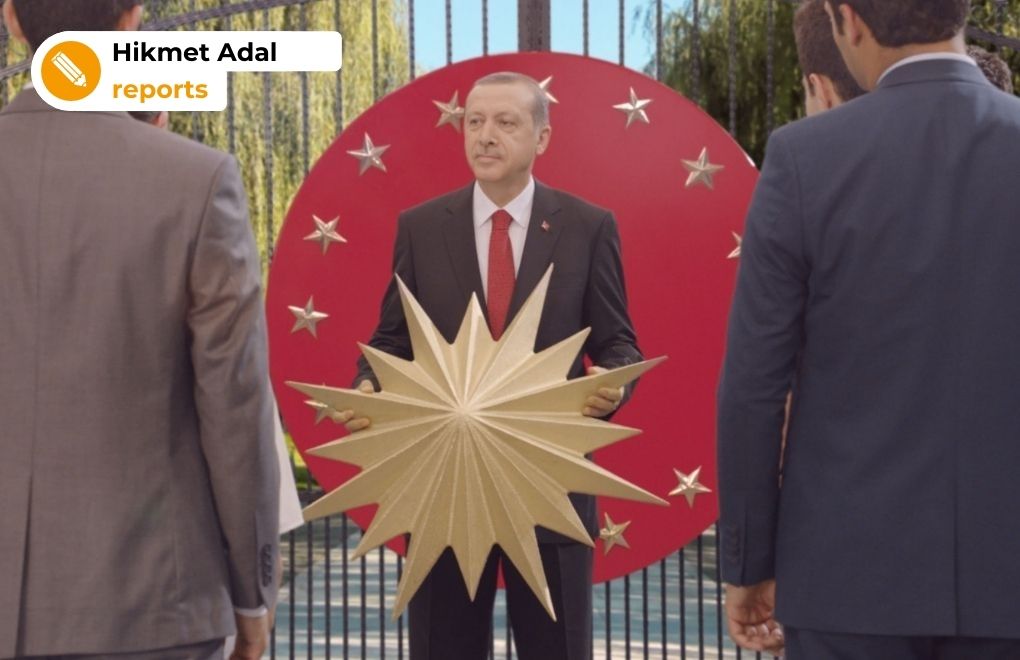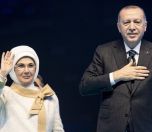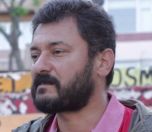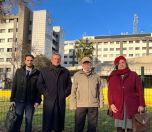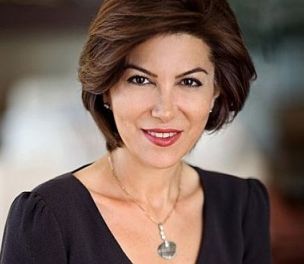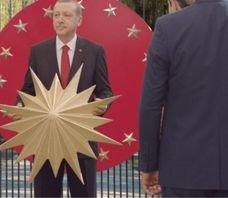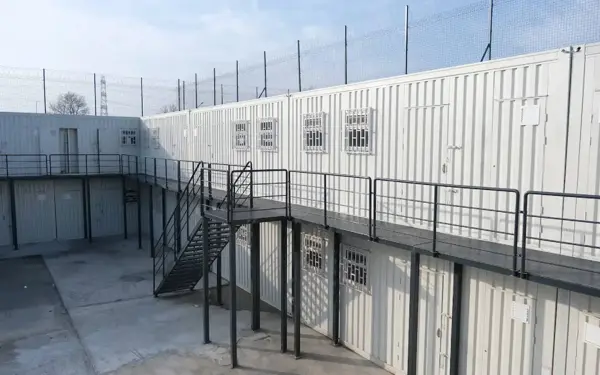Click to read the article in Turkish
Journalist Sedef Kabaş attended the "Democracy Arena" program presented by Uğur Dündar on TELE 1 on January 21, 2022.
During the program, Sedef Kabaş said, "There is a famous saying, 'A crowned head will get wiser.' But we see that this is not the reality. There is also a saying that is the exact opposite: 'When cattle go into a palace, they don't become the king; the palace becomes a barn'."
Kabaş was targeted after uttering these remarks.
Despite President Erdoğan's statement at the Judicial Year Opening Ceremony that "with the new legislation, proceedings such as detentions at midnight, in hotels or airports just to take testimonies have been ended," Kabaş was detained at 2 am. She was arrested on the same day.
Kabaş is charged with "insulting the President" as per the Article 299 of the Turkish Penal Code (TCK); she is not the only journalist facing this charge.
Önderoğlu: Turkey set against repealing the law
According to the data collected by Erol Önderoğlu, the Reporters Without Borders (RSF) Representative to Turkey and BİA Media Monitoring Rapporteur, since August 2014, when ruling Justice and Development Party (AKP) Chair Recep Tayyip Erdoğan was elected the President, at least 70 journalists have been given prison sentences, deferred prison sentences or judicial fines for "insulting the President" as of January 1, 2022.
Hundreds of journalists were put on trial; people such as Hüsnü Mahalli, Ozan Kaplanoğlu and Kazım Kızıl spent some time behind bars on this charge. According to Önderoğlu, despite the calls of the Council of Europe (CoE), Turkey is set against repealing Article 299 of the TCK.
Önderoğlu notes that Turkey has "turned this legislation, which it is set against repealing for years, into a tool to provoke the democratic discussion by the fully immune and partisan President. Under a government which has totally eliminated judicial independence, the Justice Ministry has almost turned into an approving authority for trials as per the TCK 299."
'A tool to bring society into line'
Önderoğlu underlines that the President, like any other citizen, has the right to file a lawsuit for damages against any alleged insult, noting that Article 299 of the TCK has been turned into an instrument:
"But let alone damages, the fact that journalists are detained in early morning hours and arrested shows that this accusation has been instrumentalized as a tool to teach a lesson to those who make a criticism or accusation in public. In fact, the procedure related to 'insulting the President' and the ensuing arbitrariness function as a tool to bring society into line in daily life.
"We also saw an example of this in the past when journalist Hüsnü Mahalli was briefly arrested. Unfortunately, the President, who 'broke the good news' that 'no one would be taken into custody in hotel rooms', pays no attention to journalists being detained at 2 in the morning while they would have gone to police station themselves if they had been invited or their arrest, let alone detention, by an incompetent judge.
And at a time when politics has poisoned the judiciary to such an extent, no one moves an inch to say, 'We have been convicted by the European Court of Human Rights (ECtHR) eight times in the last year in cases of arrested journalists; let's put an end to this'.
Molu: It is no longer a crime in Europe
According to human rights lawyer Benan Molu, there are more than one TCK articles regarding the offense of insult.
In the most general sense of the term, insult is defined as a crime in Article 125 of the TCK, which also has a series of sub-articles concerning insults targeting public officials and spiritual values.
Molu says that all countries of the Council of Europe (CoE) have repealed "person-specific" laws on insult and decriminalized it.
According to lawyer Molu, if insult is the case or if there is a situation where the dignity and honor of a person is tarnished, the CoE and ECtHR request that the related aggrievement be eliminated by compensation: "Europe now says, 'This is not the job of criminal courts'".
Benan Molu also recalls that the legal proceedings initiated in Turkey on alleged insults for the President have been increasing in number when compared to the former Presidents' terms of office. She briefly says:
In fact, when Turkey is compared with the other CoE countries, this is used incomparably more in Turkey. 'There is an unprecedented use,' once said Dunja Mijatović, the Council of Europe Commissioner for Human Rights. Therefore, there is an aim of silencing and punishing. The law aims to deter or prevent people from criticizing.
'Politicians are expected to tolerate criticism'
Lawyer Benan Molu also draws attention to the differences between articles regulating the offense of insult in Turkey:
"Insulting the President has been separated from other offenses of insult with the TCK 299, which is something defined as wrong by both the Constitutional Court and other international organizations.
"For instance, a politician - s/he does not necessarily have to be the President or Interior Minister - should, above all else, have a higher and wider threshold of criticism when compared to an ordinary citizen.
"So, statements such as those of Sedef Kabaş cannot be a crime. As long as it is not hate speech or a statement inciting violence, a politician is expected to tolerate criticism. This is an established court practice."
'No longer lawful after ECtHR's judgment on Şorli'
Benan Molu says that the ECtHR gave various rulings of rights violations before regarding the laws where politicians turned themselves into the subjects of a crime. Then, she refers to the Vedat Şorli judgment.
However, lawyer Molu notes that before the Şorli judgment against Turkey, dozens of similar rulings were handed down in Europe:
"In all of the similar ECtHR rulings, it is indicated that it is not legally right to give a separate status to a person, be that a President, king, quen or head of state, just because s/he holds such a title and it is concluded that people shall not be penalized for this reason.
"Here, the issue at hand is beyond a discussion on 'what that content is about' or 'whether it falls within the scope of freedom of expression', but it is about making a separate penal legislation for these people.
In its judgment on Vedat Şorli and in its previous judgments, the ECtHR says, 'No, no such separate status shall be given; it shall not be deemed a separate crime'. Filing such lawsuits is not legal, especially after the ECtHR's judgment on Şorli against Turkey.
Trials for 'insulting the President' in Turkey
Since 2014, when Erdoğan was elected the President, investigations have been launched against over 160 thousand people for "insulting the President". More than 35 thousand turned into court cases.
In these trials, over 38 thousand people and more than a thousand children appeared before the judge. The number of cases during Erdoğan's first 4-year term in office increased by 19.5 times and by 2,052 percent when compared to the term of former President Abdullah Gül.
In the trials, 12 thousand 881 people have been convicted, 3 thousand 625 people, including 10 children, have been sentenced to prison.
In 2020 alone, 45 thousand investigations were launched against people on charge of "insulting the President" and lawsuits were filed against 9 thousand 773 people as a result of these investigations.
According to the BİA Media Monitoring Report published on January 10 and covering the months of October-November-December 2021, at least 22 journalists and cartoonists were faced with this charge in this period.
According to the BİA Media Monitoring 2021 Annual Report, from August 2014, when Erdoğan was elected the President, to January 1, 2022, at least 70 journalists were given prison sentences, deferred prison sentences and/or fines for "insulting the President".
Insulting the President (TCK 299)
A person convicted of "insulting the President" as per the Article 299 of the Turkish Penal Code (TCK) is sentenced to 1 year to 4 years in prison. If the offense is committed publicly, the sentence is increased by one sixth. Prosecution on this charge is subject to the permission of the Justice Ministry. However, it is regarded as a formality and it is not known, according to the reports, whether there is any person for whom no permission has been granted by the Ministry to be prosecuted on this charge. (HA/SD)





